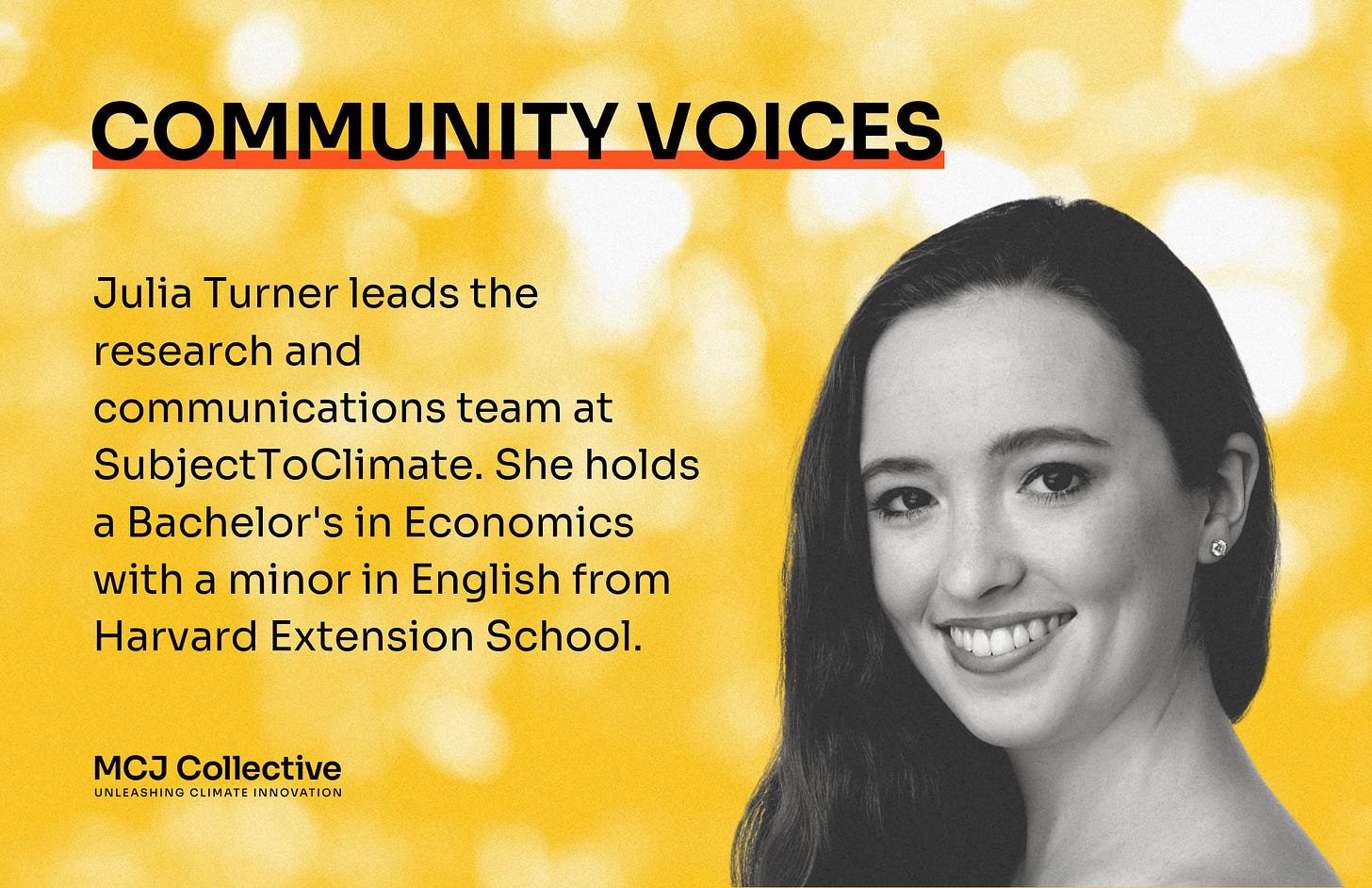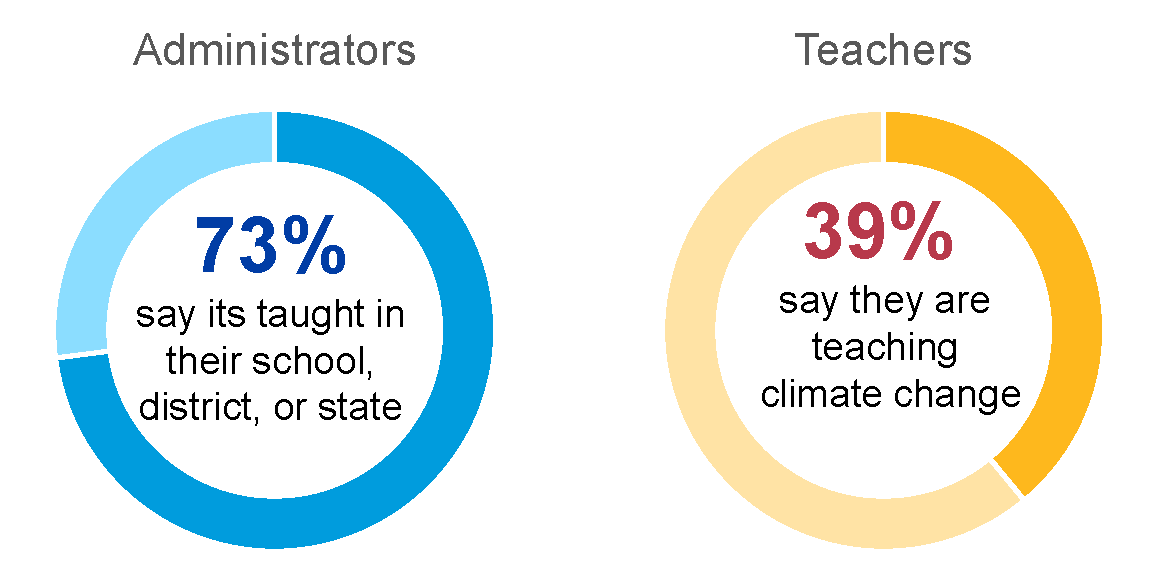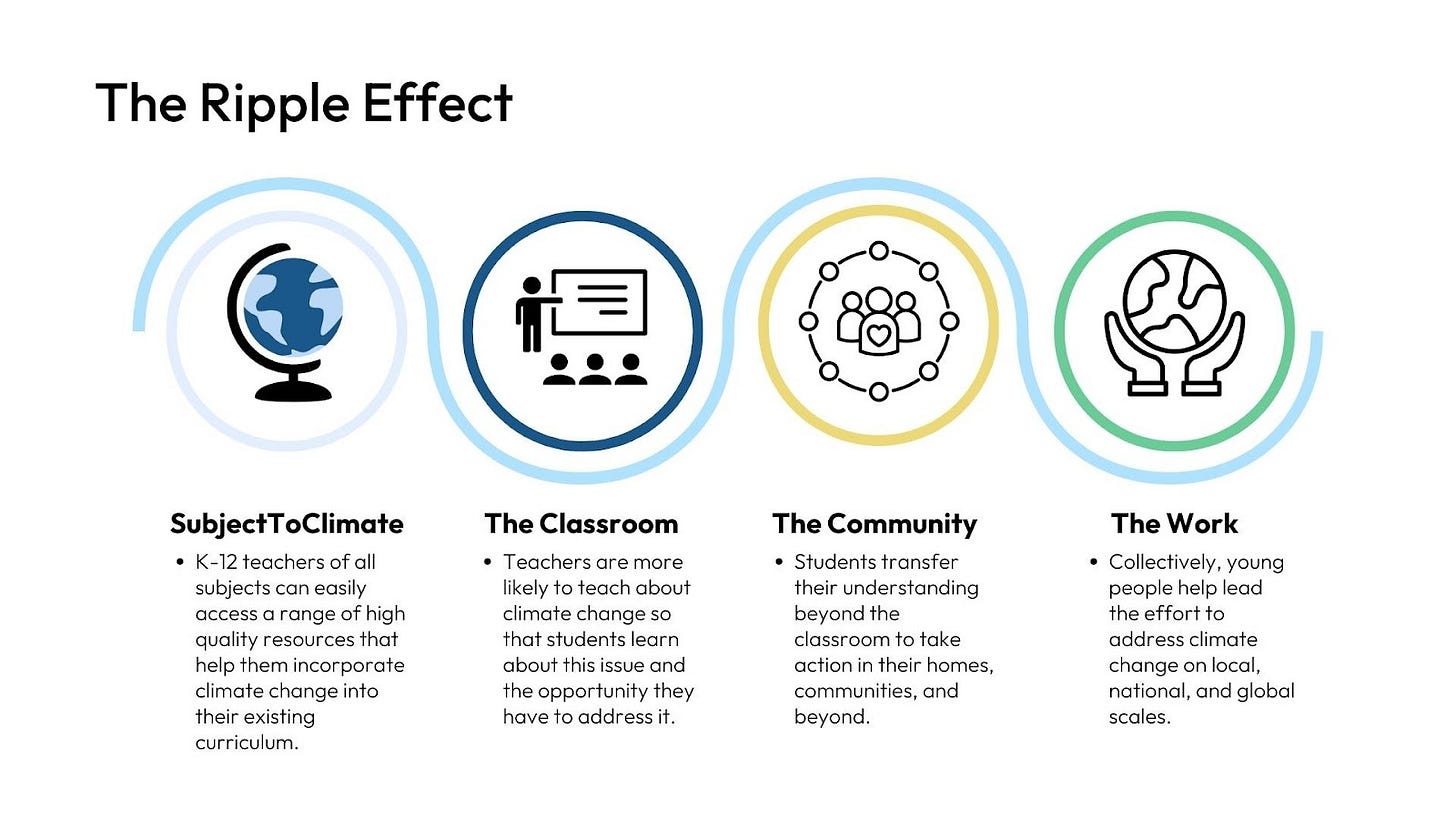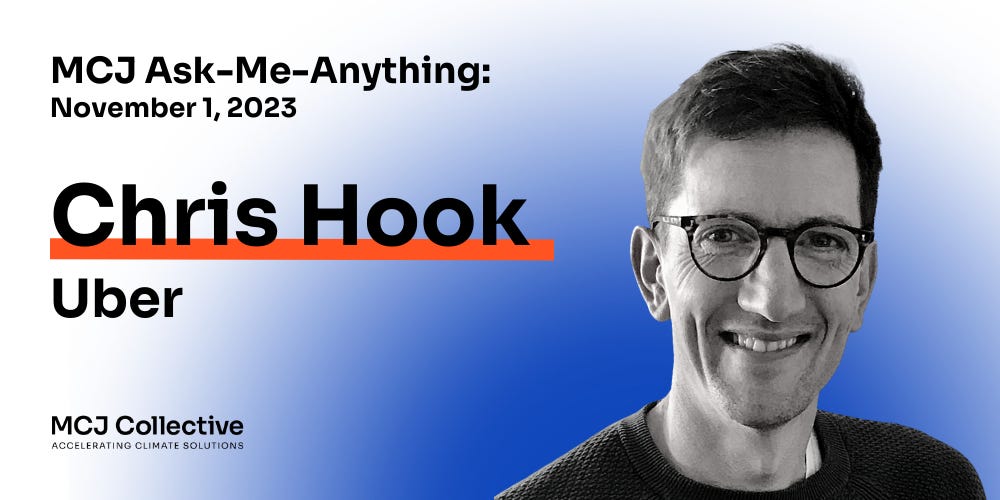Catalyzing Climate Action in the Classroom
by: Julia Turner, Senior Research Associate at SubjectToClimate
Common Google searches related to climate change include phrases like “climate change impacts on weather patterns,” “climate change and sea level rise,” and “climate change mitigation and adaptation strategies.” None of the top searches mention climate change education; indeed, education is a mere side piece, if it is included in the conversation at all when we talk about solving the climate crisis.
However, by de-prioritizing or leaving out climate education altogether, we are doing ourselves a disservice in the quest for solutions. A peer-reviewed study found that a year-long community college course about carbon emissions and climate change decreased the students’ individual yearly CO2 emissions by 2.86 tons.
Their analysis establishes that if similar education programs were applied at scale, the effect on carbon emissions could equal that of widespread rooftop solar technology or electric vehicle use. Moreover, if all secondary school students in high to middle-income countries experienced comparable results, climate change education could decrease individual yearly carbon emissions by 18.8 tons by 2050, a larger reduction than investments in electric vehicles or offshore wind power.
Perhaps one reason we see these striking results is that education affects many different sectors. In the study mentioned above, changes in transportation decisions accounted for 40% of the reduction in carbon emissions, with waste reduction, food choices and home energy use accounting for 33%, 13% and 12% (respectively). In addition to reducing emissions, climate change education often motivates schools to green the operation of their facilities, and it also increases the resilience and adaptive capacities of its students.
It’s worth noting that not all climate education is created equal. Before starting SubjectToClimate, co-founders Margaret Wang, David Jaffe, and David Rhodes were asking educators about best practices and specific obstacles in teaching about climate change. They found that educators did not feel confident about incorporating climate change into what they were teaching; this sentiment was especially true among non-science teachers. Educators also mentioned that they had little to no professional development on how to teach about the subject. Perhaps most of all, teachers responded that they did not have the time to look for and vet resources on climate change; they were just trying to keep their students up to par with basic skills and get lesson plans on the books for the next day. As a result of these obstacles, even teachers who cared about climate change and were concerned about educating their students on the topic often did not teach climate change very often or at all.
These findings mirror more recent data - in a survey of over 700 educators, NAAEE found that only 39% reported they were teaching about climate change, while many administrators believed climate change was being taught, as seen below:
In the survey, only 1 in 5 teachers reported feeling very informed about climate change, and around 57% said they were somewhat prepared to teach about climate change. Around half responded that they sometimes or never have educational resources on climate change.
With this in mind, SubjectToClimate was created as a nonprofit online connector for K-12 educators of all subjects to find credible and engaging materials on climate change at no cost. Here, we emphasize interdisciplinary climate change education - ALL teachers, of ALL subjects and ALL grade levels can integrate climate change into their lessons. By emphasizing interdisciplinary connections, we can more accurately portray the intricacy and complexity of the issue, while better equipping students to eventually tackle the challenges of the climate crisis.
Integrating climate education can be as simple as assigning a text that mentions climate change for an assignment on reading comprehension or doing a math problem that involves graphing temperature change over time. The idea is not to take climate science and teach about it in every class - rather, we aim to encourage gradual, developmentally appropriate incorporations of climate change in each classroom.
Another crucial tenet of SubjectToClimate’s work is that every resource is fully vetted by a climate scientist. When teachers come to our site to pick out a lesson plan for the next day, a video to play in class, or a news article to assign as homework, they don’t have to worry about whether or not the information in the resource is accurate or up-to-date. An educator has also evaluated each resource for engagement and pedagogical usefulness. For our lesson plans, educator reviewers use a verified rubric that incorporates tenets such as environmental justice and social emotional learning (i.e., making sure that kids are learning about climate change in a way that doesn’t heighten their anxiety about it). In addition, all of our resources are aligned to national education standards (think NGSS and Common Core), if not to state standards. Standards alignment helps teachers integrate climate change into concepts about which they are already required to teach.
Finally, our lesson plans emphasize action, featuring suggestions for ways that students can get involved, sometimes even incorporating projects such as writing a letter to an elected official. We also aim to make resources as place-based as possible; this approach is reflected in our work on creating state Hubs in new areas of the U.S., each of which emphasizes curating lesson plans written by teachers in that state about local issues. By emphasizing place-based, action-oriented climate education, we aim to inspire hope rather than anxiety and prepare students to become climate advocates.
Our most direct goal is to increase the frequency with which teachers teach about climate change by handing them resources that are high-quality, engaging, fully vetted, and free. We believe that doing so will lead more students to become advocates for and engage in climate action. We hope that teachers will have a ripple effect that will extend outwards to students, their family, friends and peers, and beyond into communities, states, etc. All kids have to attend school - we hope to leverage this guaranteed, semi-captive audience to create systemic shifts in climate action, from the ground up.
🍿 The Lean Back
Hear about SolarSquare’s innovative approach to India’s renewable energy market.
🎙️ My Climate Journey Podcast
🚙 Cody talked to Chris Hook, Uber’s Global Sustainability Lead, about the company’s sustainability efforts including negotiating better EV rental, lease or purchase rates for drivers and better pricing on compostable packaging for restaurants. Listen to the episode here.
💰 Jason talked to Rebecca Carland, Chief Investment Officer at Builders Asset Management, which is part of Lukas Walton’s family impact platform. Listen to the Capital Series here.
🇮🇳 Shreya Mishra, CEO and Co-founder at SolarSquare, shared some of the elements necessary for market adoption of rooftop solar in India, plus the ways in which SolarSquare is supporting or innovating in each. Listen to the Startup Series here.
✨ Community Highlights
🎉 Sightline Climate launched! CTVC’s market intelligence platform for the new climate economy was built on the foundation of its popular newsletter. Sightline Climate’s product goes beyond the inbox with data, tools, and frameworks to give industry professionals clarity in navigating climate transition decisions. More than 20 leading investors, corporates, and governments already use the platform. Huge congrats to Kim Zou, Mark Taylor, Sophie Purdom, and the entire team on this exciting milestone.
🌱 The Yard Stick PBC team is gearing up for the Soil Science Society of America's annual meeting in St. Louis, where they will showcase their work on in situ soil spectroscopy for soil carbon measurement. They've also secured a $1 million grant from Elemental Exelerator to explore economic opportunities tied to soil carbon measurement for underrepresented farmers. Additionally, Yard Stick is part of a multi-institutional effort, backed by an $11 million grant, to enhance soil carbon modeling and contribute their spectral expertise to the project. Congrats all around!
🌎 MCJ member Peter Van Dijck is launching an accelerator called Puente Verde for non-profits working on climate change in Latin America. Each accepted team gets a small cash investment and joins a 3-month cohort. Applications for the first cohort are open now, details here.
👩💻 Climate Jobs
For more open positions, check out the #j-climatejobs channel in MCJ Slack as well as our MCJ Job Board.
Sr. Manager, IT at AMP Robotics (Louisville, CO)
Senior B2B Marketer at David Energy (Hyrbid/Brooklyn, New York)
Graphic Design Contractor at Kopperfield (Remote)
Platform Support Manager at LevelTen Energy (Remote)
Tree Sales Manager at Living Carbon (Remote)
Systems Engineering Intern at Mill (San Bruno, CA)
Content Marketing Specialist at Pachama (Remote)
UX/UI Designer, Freelance at Salt (London, UK)
Climate Expert - North America at SINAI (Remote)
Electrical Engineering Manager at Span.IO (San Francisco, CA)
🗓 Climate Events
Click the event title for details & RSVP info. For more climate events, check out the #c-events channel in MCJ Slack.
🌇 TODAY! Urban Heat Islands Learning Session: We’ll be having a semi-structured roundtable discussion, with some prompt resources. (Oct 26)
👋 TODAY! MCJ Community Welcome Call: Connect, share and learn with MCJ community and team members. (Oct 26)
🚙 MCJ AMA: Chris Hook - Uber: Chris collaborates with leaders and teams across Uber to create lasting, impactful changes in response to the climate emergency. He recently came on the My Climate Journey podcast (listen to his episode here!) and now he’s answering YOUR questions. Set up notifications and check out event details here. (Nov 1)
🎃 MCJ New York: Fall Rooftop Happy Hour: Whether you’re busy closing your fund, iterating on prototypes, or chasing down that customer before the holidays descend, join us on citizenM’s beautiful rooftop with your fellow New Yorkers. (Nov 6)
👩💻 MCJ + Climate People Career Advancement Meetup: A unique opportunity to learn from experts, build a strong community, and chart your path in the climate sector. (Nov 8)
💡 MCJ Monthly Idea Jams > Data Management & Reporting: Two presenters pitch their idea to the group and attending community members provide feedback ranging from the presentation style to thoughts on the idea or market. (Nov 10)
The MCJ Collective Newsletter is a free weekly email curating news, jobs, My Climate Journey podcast episodes, and other noteworthy happenings in the MCJ member community.
💭 If you have feedback or items you’d like to include, feel free to reach out.
🤝 If you’d like to become an MCJ community member, apply today.
💡 Have a climate-related event or content topic that you'd like to see in the MCJ newsletter? Email us at content@mcjcollective.com





